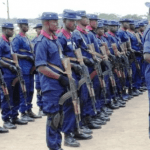The Taliban warned Wednesday of more attacks targeting Afghan government leaders, a day after the defence minister escaped an assassination attempt and as the insurgents fought to take control of a string of besieged cities across the country.
A bomb-and-gun attack on Defence Minister Bismillah Mohammadi Tuesday night brought the war to the capital for the first time in months.
But fighting has raged in the countryside since May when foreign forces began the last stage of a withdrawal due to end later this month.
The Afghan and US militaries have stepped up airstrikes against the insurgents, and the Taliban said Wednesday the Kabul raid was their response.
“The attack is the beginning of the retaliatory operations against the circles and leaders of the Kabul administration who are ordering attacks and the bombing of different parts of the country,” Taliban spokesman Zabihullah Mujahid said in a statement on social media.
It represents a major escalation by the Taliban, who have largely refrained from large-scale attacks in the capital since starting talks with the US on their troop withdrawal.
A first bomb exploded in the centre of Kabul, sending a thick plume of smoke into the sky, AFP correspondents reported.
Less than two hours later, there was another loud blast followed by smaller explosions and rapid gunfire, all near the high-security Green Zone that houses several embassies, including the US mission.
The minister was safe and Afghan forces repelled the attackers, but interior ministry spokesman Mirwais Stanikzai said eight people were killed and many more wounded.
A security source said the insurgents detonated a car bomb before storming a lawmaker’s house, from where they attacked the minister’s home.
After the first blast, thousands of people in several cities heeded a social media campaign to chant “Allahu akbar” (God is greatest) to show support for the government.
“The Taliban justified this attack as the start of retaliatory attacks against government personnel for their indiscriminate bombings,” Ibraheem Bahiss, a consultant with International Crisis Group, told AFP.
“However, it is equally possible that the Taliban has been caught off guard by the prevalence of anti-Taliban sentiments in Afghanistan’s urban centres,” he added.
There was little respite in Kabul early Wednesday, with police saying another blast injured three people.
‘No way to escape’
The Taliban threat came after the Afghan military launched a counterattack in the southern city of Lashkar Gah, where insurgents have infiltrated several parts of the city in numbers.
The army told the city’s 200,000 people to evacuate on Tuesday as they prepared their offensive.
Resident Saleh Mohammad said hundreds of families had fled, but many were caught in crossfire.
“There is no way to escape from the area because the fighting is ongoing. There is no guarantee that we will not be killed on the way,” Mohammad said.
“The government and the Taliban are destroying us.”
The insurgents have taken control of vast swathes of the countryside and key border towns, taking advantage of the security vacuum left by the withdrawal of US forces.
They are now targeting cities, with fierce fighting for a week around Herat, near the western border with Iran, as well as Lashkar Gah and Kandahar in the south.
“Those families which had financial support or a car have left their homes,” resident Halim Karimi told AFP.
“We don’t know where to go or how to leave. We are born to die.”
The loss of Lashkar Gah, the capital of southern Helmand province, would be a massive strategic and psychological blow for the government.
The United Nations said it had received reports of mounting civilian deaths and damage to critical infrastructure in Helmand and Kandahar.
“Hospitals and health workers are becoming overwhelmed by the number of wounded people,” UN spokesman Stephane Dujarric told a press briefing on Wednesday.
‘War crimes’
Human Rights Watch, meanwhile, accused the Taliban of “summarily” executing captured soldiers, police and civilians accused of having ties to the government in areas they had seized.
The rights group said it had also obtained a list of 44 people killed by the Taliban in Spin Boldak, a town on the border with Pakistan that insurgents captured last month.
“Taliban commanders with oversight over such atrocities are also responsible for war crimes,” Patricia Gossman, associate Asia director at HRW, said in a statement.
The US and Britain have also accused the insurgents of committing atrocities they said may amount to “war crimes” in the town.
As the Taliban make battlefield gains, months of on-and-off talks between the insurgents and the Afghan government in the Qatari capital of Doha have achieved little and appear to have lost momentum.
The national security advisor of neighbouring Pakistan — which has strained ties with the Kabul government and has allegedly provided material and advisory support to the Taliban — called on both sides to compromise and reach a peace settlement.
Wrapping up a week of talks in Washington on Wednesday, Moeed Yusuf played down Pakistan’s influence on the Taliban and said Kabul authorities need to cease pushing for military victory and include a broader range of Afghans in any future talks.
“There will have to be some compromise given the ground reality. But the violence will have to stop,” he said.
The Guardian






2 Comments